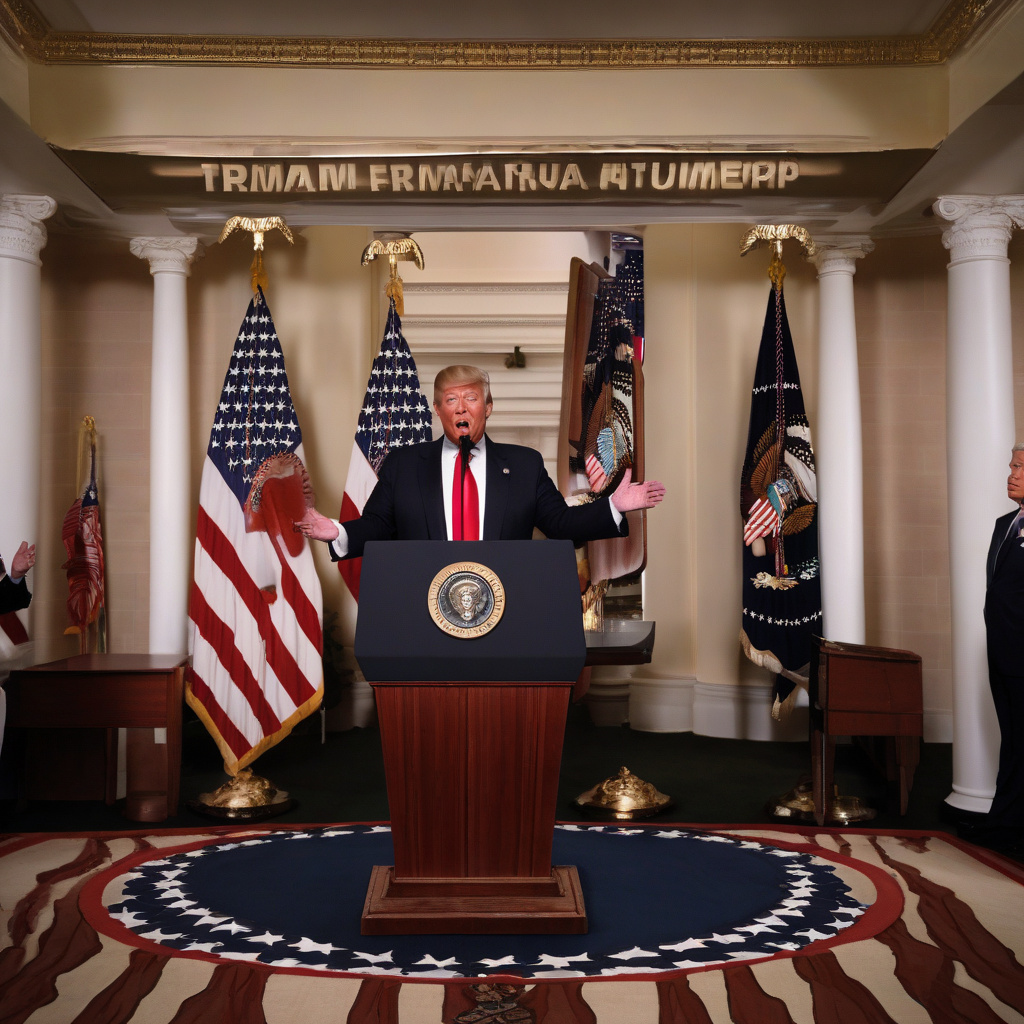Trump’s Bold Move: Pharmaceutical Tariffs Could Soar by 200%
In a bold and unprecedented move, the Trump administration has set its sights on the pharmaceutical industry, contemplating the imposition of tariffs that could skyrocket to a staggering 200%. This drastic action comes on the heels of an investigation launched in April, with the administration citing concerns about the extensive dependence on foreign production of medicine as a potential national security threat.
The pharmaceutical industry, like many others, has long relied on global supply chains to manufacture drugs efficiently and cost-effectively. However, this practice has also made the industry vulnerable to disruptions, as highlighted by the recent shortages of essential medical supplies during the COVID-19 pandemic. The Trump administration’s push for tariffs on pharmaceuticals is part of a broader strategy to bring drug manufacturing back to American soil and reduce the country’s reliance on foreign producers.
While the idea of bolstering domestic pharmaceutical production may sound appealing in theory, the reality is far more complex. The global pharmaceutical market is intricately interconnected, with active pharmaceutical ingredients (APIs) often crossing multiple borders before they are used to manufacture drugs. Imposing hefty tariffs on pharmaceutical products could lead to a ripple effect, causing drug prices to surge and potentially compromising patient access to essential medications.
Moreover, the pharmaceutical industry operates on razor-thin profit margins, with companies constantly striving to balance the high costs of research and development with the need to provide affordable drugs to consumers. Introducing tariffs of up to 200% could place an unbearable financial burden on pharmaceutical companies, forcing them to make difficult decisions about pricing, production, and even the viability of certain medications.
It’s essential to consider the potential implications of such drastic measures. While the goal of enhancing national security and reducing dependency on foreign drug manufacturers is noble, the execution must be carefully thought out to avoid unintended consequences. The pharmaceutical industry is a critical pillar of public health, and any disruptions to its operations could have far-reaching effects on patients, healthcare providers, and the economy as a whole.
As the debate over pharmaceutical tariffs continues to unfold, stakeholders from all sectors must come together to find innovative solutions that strike a balance between economic interests and public health priorities. Collaborative efforts to incentivize domestic drug manufacturing, secure supply chains, and ensure access to affordable medications for all Americans will be key to navigating this complex issue successfully.
In conclusion, the Trump administration’s proposal to impose tariffs of up to 200% on pharmaceutical products marks a significant escalation in its efforts to reshape the industry. While the intention to bolster domestic drug manufacturing is understandable, the potential repercussions of such a drastic move cannot be ignored. As the world grapples with the ongoing challenges of the COVID-19 pandemic, now more than ever, a thoughtful and inclusive approach to healthcare policy is paramount.
pharmaceuticals, tariffs, Trump administration, national security, pharmaceutical industry












